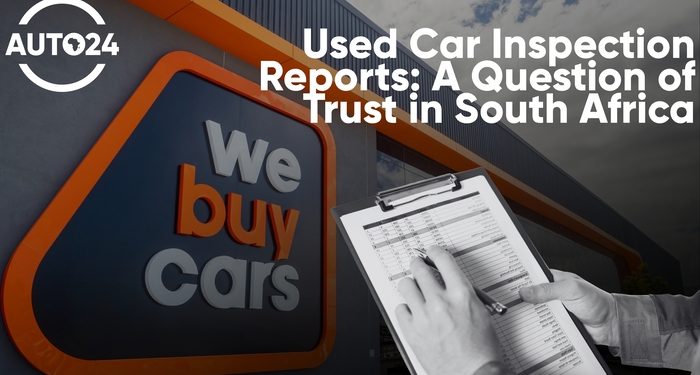Buyer Beware?
You find the perfect used car. The price is right. The mileage looks good. And the inspection report? Clean. Almost too clean.
For many South African buyers, this scenario is familiar—and unsettling. In 2025, car inspection reports have become standard fare for second-hand sales, but their trustworthiness is increasingly under the microscope.
So the question is: can you really rely on them?
1. What Is an Inspection Report?
An inspection report outlines a vehicle’s condition—mechanical, electrical, cosmetic, and structural. It typically includes:
- Brake, engine, and gearbox status
- Tyre condition and tread depth
- Exterior damage (scratches, dents, paint)
- Accident or structural damage
- Dashboard warning lights and diagnostics
In theory, it’s a tool to protect the buyer. But in practice, that depends heavily on who’s issuing it.
2. Who Conducts These Inspections?
Not all reports are created equal. Here’s where they usually come from:
- Independent workshops (which may or may not be accredited)
- Dealership in-house assessments
- Third-party services like Dekra, AA, or FirstCheck
Buyers tend to trust the third-party brands more—but even then, inconsistencies happen.
3. The Problem with Trust
While inspection reports are meant to be objective, real-world issues abound:
- Dealership bias: In-house inspections can be influenced by sales pressure.
- Report recycling: Some dealers reuse outdated reports from previous listings.
- Surface-level checks: Cosmetic issues are flagged, but deeper mechanical concerns are missed.
- No regulation: There’s no universal standard for what a report must include.
This creates a trust gap—one that leaves buyers vulnerable.
4. How Buyers Can Protect Themselves
Don’t ditch the inspection report—just learn how to use it wisely:
- Request a report that’s no older than 30 days.
- Ask who performed the inspection and whether they’re certified.
- Verify the report with an independent check, especially for higher-value cars.
- Don’t ignore red flags like vague summaries or missing details.
If you’re serious about a car, pay for your own third-party inspection. It’s a small price for peace of mind.
5. What Needs to Change?
For inspection reports to regain credibility in South Africa, the industry needs:
- Standardisation of report formats and checklists
- Stricter penalties for falsified or recycled reports
- Transparent reporting of who conducted the check and when
- A buyer feedback platform to rate inspection providers
Until then, trust in inspection reports will remain conditional at best.
Conclusion: Use Reports—But Don’t Rely on Them Alone
Used car inspection reports can be a helpful guide—but they are not a guarantee. In South Africa’s dynamic second-hand market, your best protection is still a mix of caution, due diligence, and independent verification.
Trust, in this case, should be earned—not assumed.





